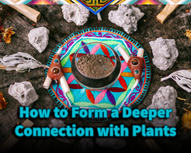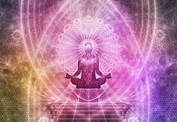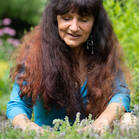Code of Ethics as a Holistic Practitioner:
Do no harm: The holistic practitioner does no harm, and serves people with the objective of cultivating goodness and wholeness.
Unconditional Love: The holistic healer offers care from an infinite field of love and compassion. Unconditional love describes the ability to love without reservations or agendas.
Model Healthy Behaviors: Holistic healers model healthy behaviors and engage in practices that support wholeness. The holistic healer has the responsibility to identify and integrate self-care strategies to enhance their own well-being and assist others in their efforts to do the same.
Form Quality Professional Relationships: The holistic healer maintains cooperative relationships with other professionals whether holistic or allopathic. Holistic healers have a responsibility to nurture each other, and support other healers to work as a team in the interest of client care. The holistic healer makes referrals to other qualified professionals when appropriate. The holistic healer does not make medical diagnoses or prescribe medications without appropriate training and licensure; neither do they suggest that the client change prescribed treatment or interfere with the treatment of a licensed health care provider.
Form Quality Client Relationships: The holistic healer strives to see the client as a whole person- body, mind and spirit- and provides care that is consistent. The holistic healer is sensitive to the boundary needs of individual clients. The holistic healer holds in confidence all information obtained in professional practice, and uses professional judgment in disclosing such information.
The Pursuit of Wisdom: Holistic healers pursue wisdom and act wisely. Holistic healers cultivate awareness and understanding concerning individual consciousness and one’s relationship to Universal Consciousness. Holistic healers recognize that clients may bring lessons to the healer; illness, pain, and the dying process offer learning opportunities for both the client and the healer.
Competence in the Holistic Practice: The holistic healer caries personal responsibility for practice and for maintaining continued competence. The Holistic healer provides services commensurate with their training and perform only those services for which they are qualified. Holistic healers pursue continuing professional education and training to maintain and enhance their competence. Holistic healers have the obligation to determine the efficacy and safety of all healing actions. Wherever applicable, holistic healers utilize research findings in directing of practice. Holistic healers observe all applicable laws, and uphold the dignity and honor of their profession.
Professional Responsibility: The holistic healer plays a role in determining and implementing desirable standards of holistic practice and education. Holistic healers work with others in their field and other fields to guide these healing professions toward holism, and to maintain and monitor high professional standards of care.
Do no harm: The holistic practitioner does no harm, and serves people with the objective of cultivating goodness and wholeness.
Unconditional Love: The holistic healer offers care from an infinite field of love and compassion. Unconditional love describes the ability to love without reservations or agendas.
Model Healthy Behaviors: Holistic healers model healthy behaviors and engage in practices that support wholeness. The holistic healer has the responsibility to identify and integrate self-care strategies to enhance their own well-being and assist others in their efforts to do the same.
Form Quality Professional Relationships: The holistic healer maintains cooperative relationships with other professionals whether holistic or allopathic. Holistic healers have a responsibility to nurture each other, and support other healers to work as a team in the interest of client care. The holistic healer makes referrals to other qualified professionals when appropriate. The holistic healer does not make medical diagnoses or prescribe medications without appropriate training and licensure; neither do they suggest that the client change prescribed treatment or interfere with the treatment of a licensed health care provider.
Form Quality Client Relationships: The holistic healer strives to see the client as a whole person- body, mind and spirit- and provides care that is consistent. The holistic healer is sensitive to the boundary needs of individual clients. The holistic healer holds in confidence all information obtained in professional practice, and uses professional judgment in disclosing such information.
The Pursuit of Wisdom: Holistic healers pursue wisdom and act wisely. Holistic healers cultivate awareness and understanding concerning individual consciousness and one’s relationship to Universal Consciousness. Holistic healers recognize that clients may bring lessons to the healer; illness, pain, and the dying process offer learning opportunities for both the client and the healer.
Competence in the Holistic Practice: The holistic healer caries personal responsibility for practice and for maintaining continued competence. The Holistic healer provides services commensurate with their training and perform only those services for which they are qualified. Holistic healers pursue continuing professional education and training to maintain and enhance their competence. Holistic healers have the obligation to determine the efficacy and safety of all healing actions. Wherever applicable, holistic healers utilize research findings in directing of practice. Holistic healers observe all applicable laws, and uphold the dignity and honor of their profession.
Professional Responsibility: The holistic healer plays a role in determining and implementing desirable standards of holistic practice and education. Holistic healers work with others in their field and other fields to guide these healing professions toward holism, and to maintain and monitor high professional standards of care.







